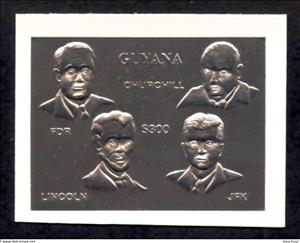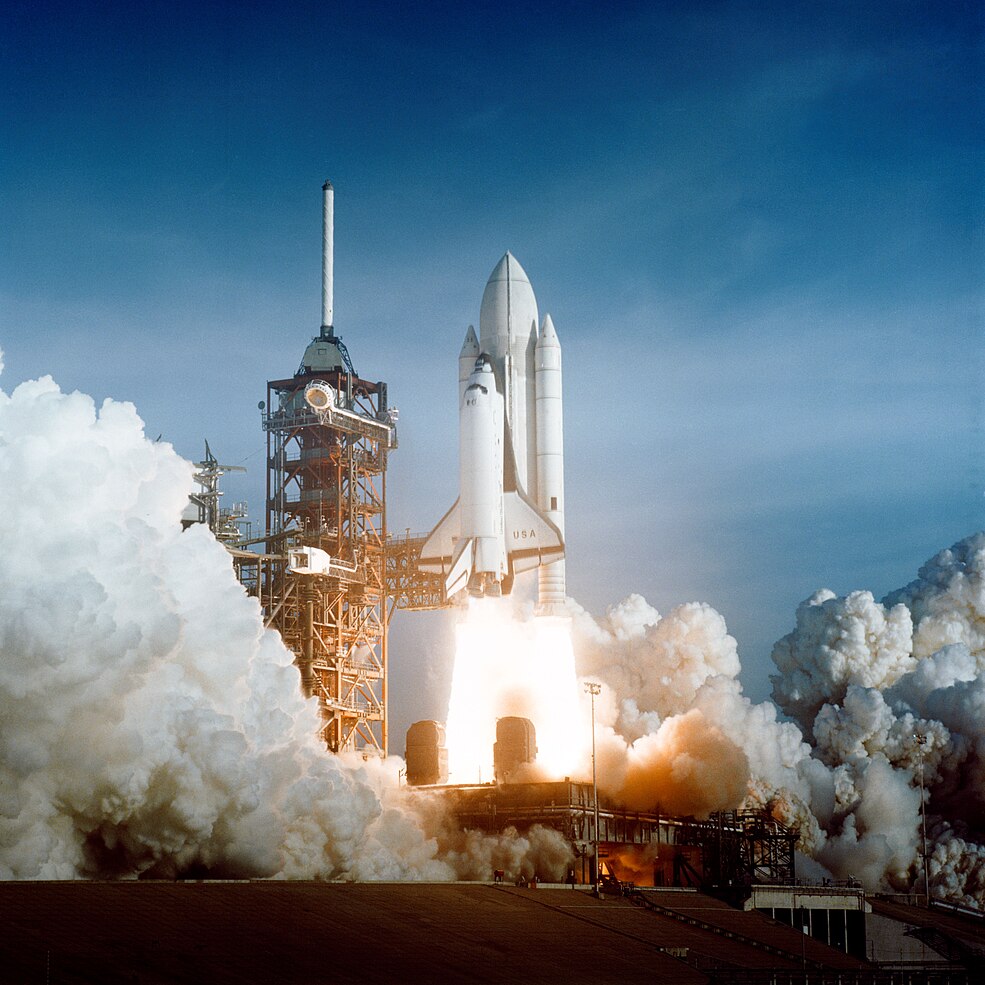Stamp: Franklin D. Roosevelt, Winston Churchill, Abraham Lincoln, … (Guyana 1994)
Franklin D. Roosevelt, Winston Churchill, Abraham Lincoln, … (Guyana 1994)
10 February (Guyana ) within release Politicians goes into circulation Stamp Franklin D. Roosevelt, Winston Churchill, Abraham Lincoln, … face value 300 Guyanese dollar
| Stamp Franklin D. Roosevelt, Winston Churchill, Abraham Lincoln, … in catalogues | |
|---|---|
| Michel: | Mi: GY 4521B |
| Colnect codes: | Col: GY 1994.02.10-26a |
Stamp is square format.
Stamp from souvenir sheetAlso in the issue Politicians:
- Stamp - Kennedy, Churchill, Lincoln, Roosevelt face value 300;
- Souvenir Sheet - WW II Anniversary face value 600;
- Stamp - Franklin D. Roosevelt, Winston Churchill, Abraham Lincoln, … face value 300;
- Stamp - Franklin D. Roosevelt, Winston Churchill, Abraham Lincoln, … face value 300;
- Stamp - Franklin D. Roosevelt, Winston Churchill, Abraham Lincoln, … face value 300;
Stamp Franklin D. Roosevelt, Winston Churchill, Abraham Lincoln, … it reflects the thematic directions:
An aircraft (pl. aircraft) is a vehicle that is able to fly by gaining support from the air. It counters the force of gravity by using either static lift or the dynamic lift of an airfoil, or, in a few cases, direct downward thrust from its engines. Common examples of aircraft include airplanes, rotorcraft (including helicopters), airships (including blimps), gliders, paramotors, and hot air balloons.Part 1 (Definitions and Abbreviations) of Subchapter A of Chapter I of Title 14 of the U. S. Code of Federal Regulations states that aircraft "means a device that is used or intended to be used for flight in the air."
An astronaut (from the Ancient Greek ἄστρον (astron), meaning 'star', and ναύτης (nautes), meaning 'sailor') is a person trained, equipped, and deployed by a human spaceflight program to serve as a commander or crew member aboard a spacecraft. Although generally reserved for professional space travelers, the term is sometimes applied to anyone who travels into space, including scientists, politicians, journalists, and tourists
Aviation is the practical aspect or art of aeronautics, being the design, development, production, operation and use of aircraft, especially heavier than air aircraft. The word aviation was coined by French writer and former naval officer Gabriel La Landelle in 1863, from the verb avier (synonymous flying), itself derived from the Latin word avis ("bird") and the suffix -ation.
Outer space (or simply space) is the expanse that exists beyond Earth's atmosphere and between celestial bodies. It contains ultra-low levels of particle densities, constituting a near-perfect vacuum of predominantly hydrogen and helium plasma, permeated by electromagnetic radiation, cosmic rays, neutrinos, magnetic fields and dust. The baseline temperature of outer space, as set by the background radiation from the Big Bang, is 2.7 kelvins (−270 °C; −455 °F)
A spacecraft is a vehicle that is designed to fly and operate in outer space. Spacecraft are used for a variety of purposes, including communications, Earth observation, meteorology, navigation, space colonization, planetary exploration, and transportation of humans and cargo. All spacecraft except single-stage-to-orbit vehicles cannot get into space on their own, and require a launch vehicle (carrier rocket).





